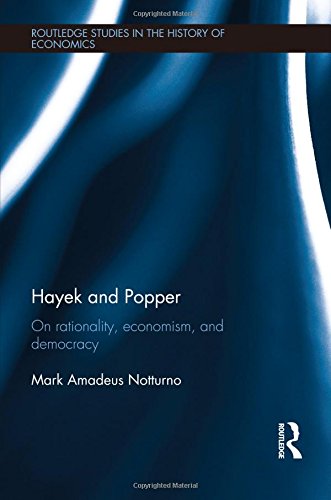

Most ebook files are in PDF format, so you can easily read them using various software such as Foxit Reader or directly on the Google Chrome browser.
Some ebook files are released by publishers in other formats such as .awz, .mobi, .epub, .fb2, etc. You may need to install specific software to read these formats on mobile/PC, such as Calibre.
Please read the tutorial at this link. https://ebooknice.com/page/post?id=faq
We offer FREE conversion to the popular formats you request; however, this may take some time. Therefore, right after payment, please email us, and we will try to provide the service as quickly as possible.
For some exceptional file formats or broken links (if any), please refrain from opening any disputes. Instead, email us first, and we will try to assist within a maximum of 6 hours.
EbookNice Team

Status:
Available4.5
9 reviewsKarl Popper and Friedrich von Hayek are remembered as two of the twentieth century’s greatest proponents of open society. However, over the years, Hayek’s ideas have tended to be favoured over Popper’s in both academic and political discussions. This book aims to improve understanding of Popper’s and Hayek’s philosophies by explaining their differences, and whilst doing so, to encourage liberal political philosophers to take a better-informed and more sympathetic look at Popper’s ideas about open society.
Popper and Hayek differed in subtle but fundamental ways about rationality, economism, and democracy. They thus differed about whether and to what extent society is well served by deliberate attempts at social engineering and government intervention in the economy. They also differed about whether democracy is better served by institutions designed to elect the best leaders, or by institutions designed to protect us against the leaders we elect. And they differed, perhaps most importantly, about whether we should value freedom as a means to prosperity or an end-in-itself.
This book argues that Hayek’s views about rationality, economism, and democracy are fundamentally at odds with Popper’s¾ and perhaps even with open society itself―and that the unintended consequences of Hayek’s views may actually pose a threat to Popper’s vision of a liberal and free open society.